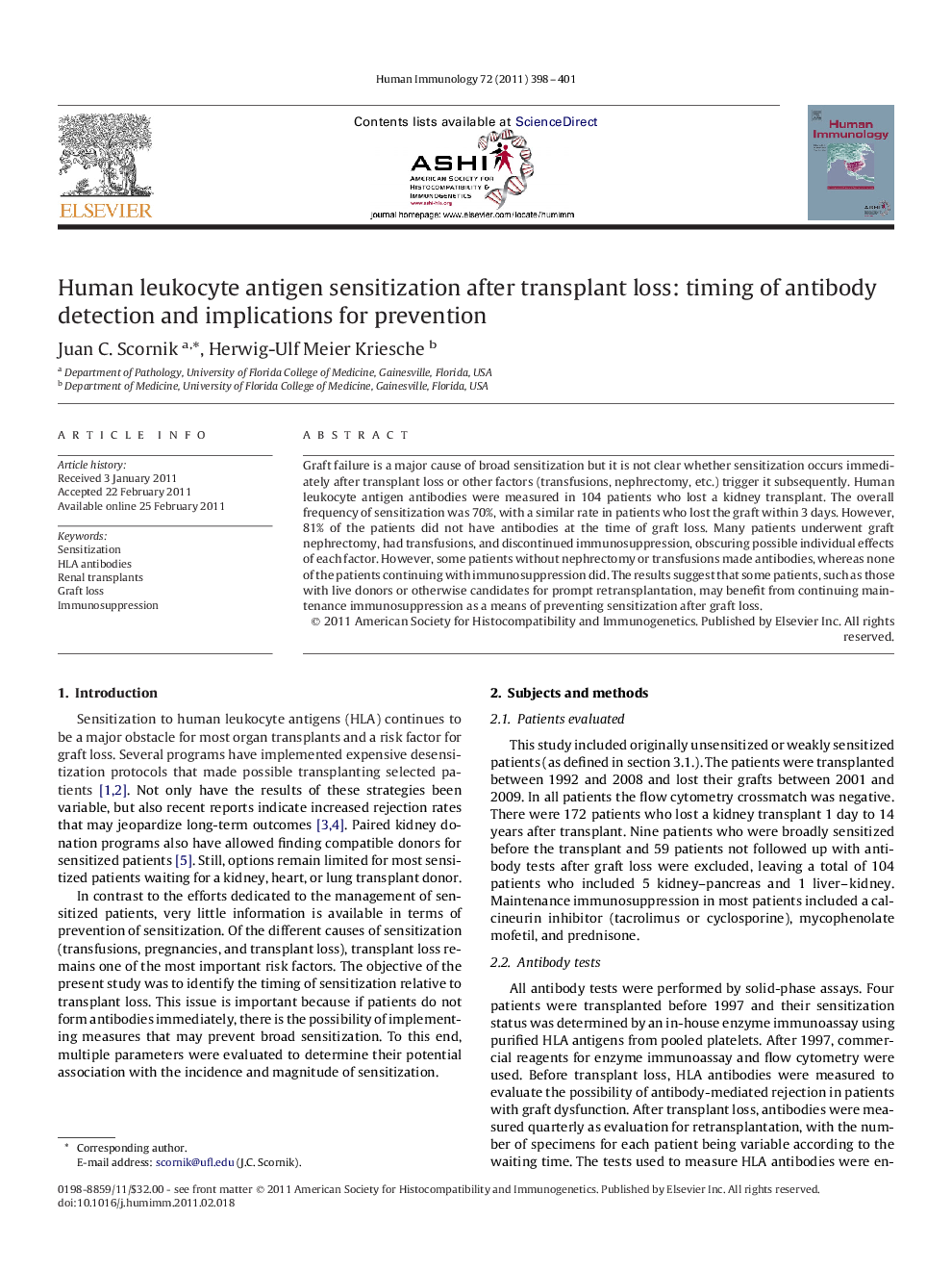| Article ID | Journal | Published Year | Pages | File Type |
|---|---|---|---|---|
| 3350986 | Human Immunology | 2011 | 4 Pages |
Graft failure is a major cause of broad sensitization but it is not clear whether sensitization occurs immediately after transplant loss or other factors (transfusions, nephrectomy, etc.) trigger it subsequently. Human leukocyte antigen antibodies were measured in 104 patients who lost a kidney transplant. The overall frequency of sensitization was 70%, with a similar rate in patients who lost the graft within 3 days. However, 81% of the patients did not have antibodies at the time of graft loss. Many patients underwent graft nephrectomy, had transfusions, and discontinued immunosuppression, obscuring possible individual effects of each factor. However, some patients without nephrectomy or transfusions made antibodies, whereas none of the patients continuing with immunosuppression did. The results suggest that some patients, such as those with live donors or otherwise candidates for prompt retransplantation, may benefit from continuing maintenance immunosuppression as a means of preventing sensitization after graft loss.
